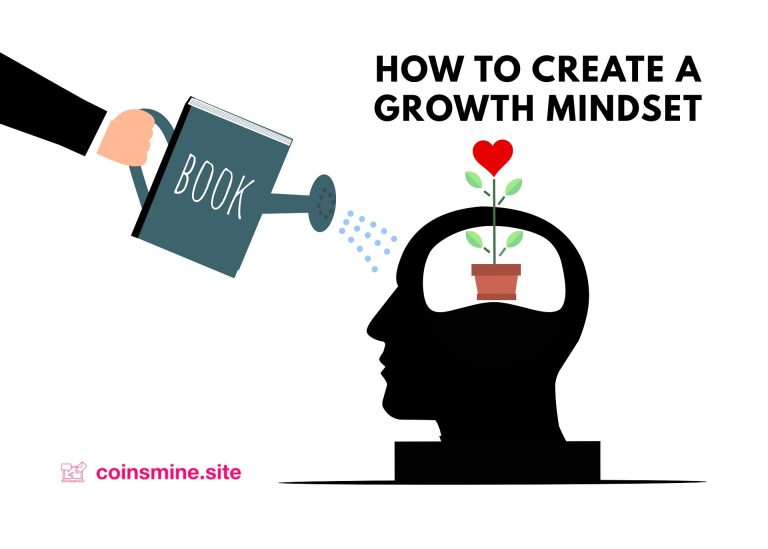How to Create a Growth Mindset: Your approach to life can be totally transformed by adopting a development mindset. A growth mindset helps you feel that intelligence and talents may be enhanced via work, education, and perseverance rather than being fixed.
This kind of thinking promotes a love of challenges, a higher desire to try new things and take chances, and resilience in the face of disappointments. Changing your perspective is a great place to start, regardless of your goals—personal development, professional success, or improved relationships. This post will teach you how to cultivate and reinforce a growth mindset in your daily life.
How to Create a Growth Mindset
The term, which was first used by psychologist Carol Dweck, contrasts with a fixed mindset, which holds that a person’s traits are unalterable and unchanging. You can change the way you approach problems, relationships, careers, and personal development by adopting a growth mindset. It cultivates curiosity, fortitude, and a passion for learning that lasts a lifetime.
Here’s how to cultivate a growth mindset and apply it in your everyday life.
(1) Recognize Fixed Mindset Triggers.
Developing a development mindset begins with awareness. Everybody has times when a fixed attitude takes over, such as when they shy away from difficulties, are afraid of failing, or give up easily. Internal ideas such as “I will never be able to learn that” or “I am just not good at this” may come to mind.
Keep an eye out for these trends. You can start to question and reinterpret your fixed thinking triggers when you have identified them.
(2) Reframe Failure as Feedback.
Reframe it as “This did not work, so what can I learn from it?” rather than “I failed, so I am not good enough.” Errors are chances to learn, adapt, and try again with a fresh perspective rather than indicators of inadequacy.
“I have not failed,” Thomas Edison famously remarked. I just discovered 10,000 ineffective methods. Take that same stance.
(3) Celebrate Effort, Not Just Results.
People with a fixed perspective frequently associate their worth with results, such as accolades, promotions, and grades. Although outcomes are important, a growth mindset emphasizes perseverance, strategy, and effort. Give yourself (and others) credit for the effort you put into learning, overcoming problems, and maintaining consistency.
When you value process and effort over perfection, you develop self-assurance and motivation that endure through difficult times.
(4) Embrace Challenges.
Although they can be difficult, challenges are necessary for development. Lean into challenging circumstances rather than avoiding them. “What am I able to learn from this experience?” or “How will I become stronger after surviving this?”
Your capacity to adapt, solve problems, and develop resilience—all characteristics of a growth mindset—is strengthened by every obstacle you encounter and overcome.
(5) Be Open to Feedback.
Hearing criticism, particularly when it highlights errors or shortcomings, can be difficult. Constructive criticism, however, is a tool for progress rather than a personal assault in a growth mentality. Instead of becoming defensive, listen with interest. Get clarification, make notes, and utilize the comments to inform your next course of action.
(6) Use the Word “Yet”
The word “yet” is a tiny but effective tool in the growth mindset toolbox. Use the phrase “I cannot do this yet” instead of “I cannot do this” if you find yourself saying it. The door to learning remains open because of that one word.
“I’m not good at public speaking… yet.”
“I don’t understand this topic… yet.”
This change in terminology supports the idea of development and advancement.
(7) Surround Yourself with a Growth-Minded Environment.
The people and situations you spend time with have an impact on your thinking. Be in the company of people who respect education, development, and fortitude. Look for communities, peers, or mentors who value learning from mistakes and promote ongoing development.
Read books, listen to podcasts, and take in information that helps you reach your personal development objectives.
Final Thoughts.
Developing a growth mindset is not about maintaining an optimistic attitude or acting as though hard work always pays off. It is about having faith in your ability to develop and adjust, even in the face of adversity. You may change your perspective and realize your full potential with self-compassion, deliberate practice, and awareness.
Keep in mind that the brain’s strength increases with use, just like a muscle.



